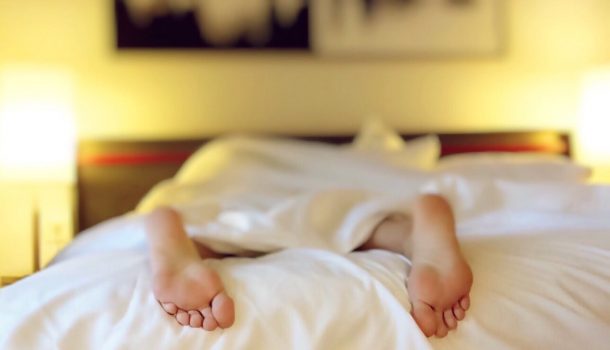As the unofficial start of summer nears, so do longer hours of daylight. This transition, especially for kids as summer vacation begins, can negatively affect sleep habits.
“It’s difficult to get kids to bed when it’s still light outside, so allowing them to stay up a bit later is okay, but try not to deviate more than one hour because sleep is just as important as the air you breathe.”

As part of Better Sleep Month, HSHS Sacred Heart Hospital’s accredited Sleep Disorders Center has tips to keep kids and adults fully rested during summer months.
- Limit the use of electronics one hour prior to bed to prepare bodies and brains for sleep
- Try not to deviate from a normal bedtime for more than two days in a row
- Do not go to bed hungry
- Keep the bedroom temperature cooler than the rest of the house
- Avoid caffeine four to six hours before bedtime
Kelly Schmidt, HSHS Sacred Heart Hospital Sleep Disorders Center facilitator says it’s always best to stay in a routine when it comes to bedtime and wake time, no matter the season. “It’s difficult to get kids to bed when it’s still light outside, so allowing them to stay up a bit later is okay, but try not to deviate more than one hour because sleep is just as important as the air you breathe.”
Schmidt says if you notice hyperactivity, sudden changes in behavior or prolonged extreme tiredness during the day, children may not be getting enough quality sleep. “Children, on average, need eight to 10 hours of sleep depending on their age,” she says. “That doesn’t change during summer break or on holidays.”
There are more than 80 identified sleep disorders and sometimes the cause has nothing to do with actual lack of sleep, according to Schmidt. She says stress, depression, a change in family dynamics, a new caregiver and other life adjustments can lead to trouble sleeping.


